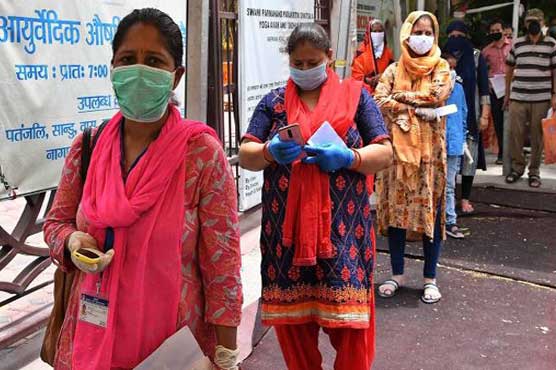India ill-equipped to live with coronavirus: International journal

India ill-equipped to live with coronavirus: International journal
MUMBAI (Web Desk) – International Journal Financial Times on Wednesday published that ill-equipped India has badly failed to deal with the deadly coronavirus.
According to Financial Times, India has officially suffered only about 7,500 Covid-19 deaths out of its 1.4bn population. Yet the pandemic’s total human cost there has in many ways already been among the worst in the world.
On March 24, prime minister Narendra Modi imposed one of the world’s strictest lockdowns when India still had little over 500 cases, insisting it would “emerge victorious” against the virus. Since late May, the country has been reopening its severely battered economy — even as rising numbers of new infections are overwhelming its hospitals.
Mr Modi now says the virus will “remain part of our lives for a long time”. India looks dangerously ill-equipped for that prospect.
As businesses and shops closed and all public transport abruptly suspended, tens of millions of internal migrant workers in cities immediately lost work. Millions remained stranded in slums and industrial areas with no livelihood. Many set off on foot to their home villages.
The economic impact has been grave. More than 140m people lost jobs; Goldman Sachs estimates the country’s gross domestic product will contract at an annualised rate of 45 per cent in April-June from the previous quarter. India’s first annual recession for 40 years looms.
The government last month announced a stimulus package billed as worth $266bn, or 10 per cent of GDP. Yet direct support for the poor was limited. As in many western packages, the focus was guarantees aimed at prompting banks to lend more to already-indebted businesses. Economists estimate the true stimulus value as perhaps 1.5 per cent of GDP.
Health experts are also calling for new measures to try to slow the virus. They include “cluster” restrictions where there are severe outbreaks, far more testing and data-sharing — amid suspicions authorities are trying to suppress figures — and strenuous efforts to promote universal mask wearing and hand hygiene.
This article was originally published in Financial Times

